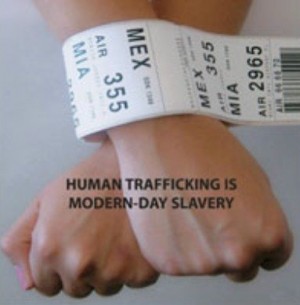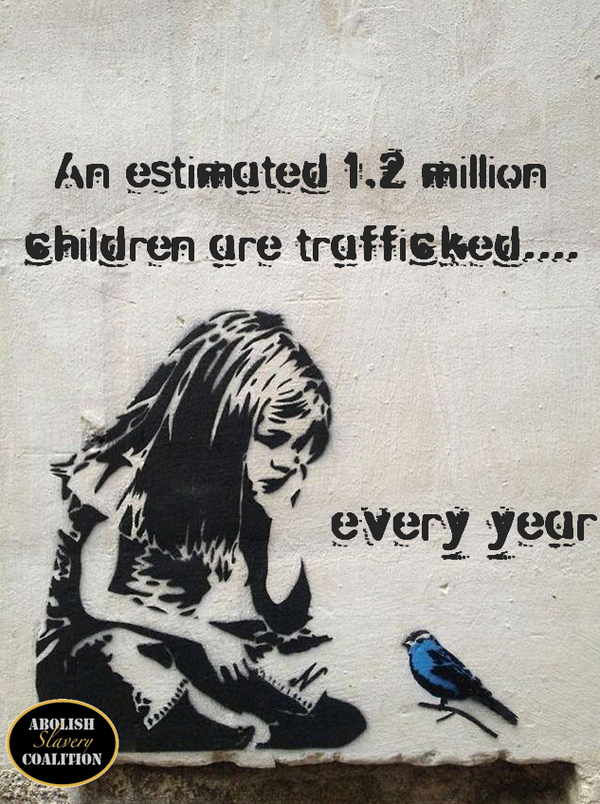Project: Prevention, Protection and Integration of the Human Trafficking Victims in Serbia14Dec2014
For human trafficking victims, state offers ‘a new beginning’
BALTIMORE — Katie had been in Baltimore less than 24 hours when police burst into a Linthicum hotel room during a prostitution sting in May 2011.
Her arrest that day brought a mix of fear and relief. The young woman, originally from Texas, had worked in prostitution on and off since she was 13 — when she was trafficked by her first pimp. Eight years later, she would turn 21 in jail.
Katie eventually found social services that she said helped her get her life straightened out. But she still had prostitution charges on her record, and they weighed heavily on her mind.
Today, those charges have been erased through conviction vacatur, a process permitted by a 2011 Maryland state law that allows victims of human trafficking to have prostitution records cleared.
Katie’s case is among the first to use the law, said her attorney, Jessica Emerson of the Women’s Law Center of Maryland, which has started a project to help trafficking victims navigate this new legal remedy.
When she got the call from Emerson in September telling her of the ruling that vacated her conviction, “it was like stress was gone,” said Katie, who now lives in her native Texas and did not want her full name revealed because she is trying to move on with her life.

“That’s a new beginning,” she said.
Erasing these types of records is part of a nationwide shift by law enforcement, legislators and attorneys, acknowledging that many people who engage in prostitution are victims of human trafficking, meaning they were coerced or forced into the criminal act.
In being prosecuted for prostitution, many have been “revictimized by the state,” Emerson said.
“Up until now … there was nothing to really address that injustice,” she said.
Maryland was the second state to pass this type of law — after New York — but since 2011 the measures have gained momentum nationally. Today, 18 other states have similar laws, said Britanny Vanderhoof, policy counsel for the Polaris Project, a national organization that fights human trafficking and advocates for victims.
Maryland officials were early supporters of the concept, but the law initially lacked publicity and “boots on the ground” — attorneys trained to help these types of clients, said Emerson, a former social worker.
She said part of the initiative of the Towson-based Women’s Law Center of Maryland is to reach out to organizations that work with trafficking survivors, and to train other lawyers in the state to take the cases.
Criminal convictions block people’s chances of finding jobs and housing, say supporters of vacatur laws.
“Particularly for people who were victims of sex trafficking, it just revictimizes folks and makes it difficult for them to move on with their lives,” said Audacia Ray, executive director of the Red Umbrella Project, a New York-based organization that advocates for sex workers.
Clearing the criminal record also helps ease the self-blame that many trafficking survivors internalize, Emerson said.
Katie, who is now studying to become a teacher, believes most people would not understand her experiences.
“It’s not like I can explain to them, ‘Hey, you know, I was a trafficking survivor,’” Katie said. “There’s a stigmatization to that. People are like ‘Ew, prostitution — she’s dirty.’”
Vacatur of a conviction is different from having a record expunged, in that a vacatur means the court declares that the conviction never should have happened, said Emerson, whose work on the issue is funded by Equal Justice Works, a nonprofit organization that promotes public-service law.
The legal community is increasingly showing its support for the idea. Last year, the American Bar Association adopted a resolution urging lawmakers to adopt vacatur laws for human-trafficking victims, and urged legal service providers to develop pro bono programs to help them.
Vacating a prostitution conviction involves taking a detailed affidavit from the trafficking victim before taking the legal motion to a judge, Emerson said.
“In essence, the only thing you really need is the word or the story of the survivor,” she said.
The law requires the person with the conviction to provide evidence and copies of any documents supporting their story. A prosecutor must agree to the motion, too.
Advocates don’t know exactly how many people the law could affect.
“I think that number is a lot higher than we could ever imagine if we start to ask the right questions,” said Melissa Snow, who chairs the victim services committee of the Maryland Human Trafficking Task Force.
Baltimore County State’s Attorney Scott Shellenberger said he supports the new law, adding that there has been a major shift in the way law enforcement and prosecutors see the issue.
Shellenberger said that when he became the county’s top prosecutor in 2007, human trafficking “wasn’t even on my radar.” He credits younger attorneys with teaching him that “you’ve got to go back to the beginning and realize how they (prostitutes) got there.”
Now, he said, he understands “that not everybody who’s out there advertising on Craigslist or walking on Route 40 wants to be there.”

Katie’s story began when she was only a young girl. She had been raped at age 11, her father wasn’t in the picture and she suffered from “really bad self-esteem,” she recalled in a recent phone interview.
“I was going through stuff,” she said. “I was acting out.”
When an older man — she estimates he was in his mid-30s — called out compliments to her from his car one day when she was 13, she liked the attention.
He gave her his number, and she got in touch. He paid for her to get her nails done and bought her new clothes. She ran away with him, but within a week, he forced her into prostitution, she said.
Throughout her teen years, Katie went back and forth between pimps and her family, she said. In 2011, her last pimp brought her to Maryland, where she was arrested in Anne Arundel County.
Snow said that Katie’s experience contains many elements that highlight the dynamics of exploitation that trafficking victims often encounter. For one, traffickers are typically “masters of manipulation” and target people with unstable home lives.
“They’re extremely good at identifying vulnerabilities that are going on in a person’s life,” she said. “These pimps, they have all the time in the world to be a good listener.”
For clients, recounting their experiences for affidavits can trigger past trauma, said Emerson, who is now working on vacatur cases in Baltimore and Howard, Prince George’s and Baltimore counties.
Emerson’s clients range from women in their late teens to those in their 50s. She said that while they all have different situations, a common experience is that they all have sustained trauma early in their lives, such as being sexually assaulted, neglected by parents or witnessing community violence.
“I would say that every single one of my clients has early trauma,” she said.
Katie said she was first hesitant when she learned that Emerson could help her, especially because the law was new. They met through TurnAround, a Baltimore nonprofit organization that offers services for victims of sexual assault, domestic violence and trafficking.
“I didn’t want to get my hopes up,” she said. “I felt weird challenging the court because I didn’t want to get in trouble. You just don’t feel good when you go into a courthouse.”
She hopes her clean legal slate will let her pursue her dream of becoming a teacher.
“I want a career,” Katie said. “I don’t want some minimum-wage job working at a fast food restaurant.”
The Baltimore Sun, Reading Eagle



